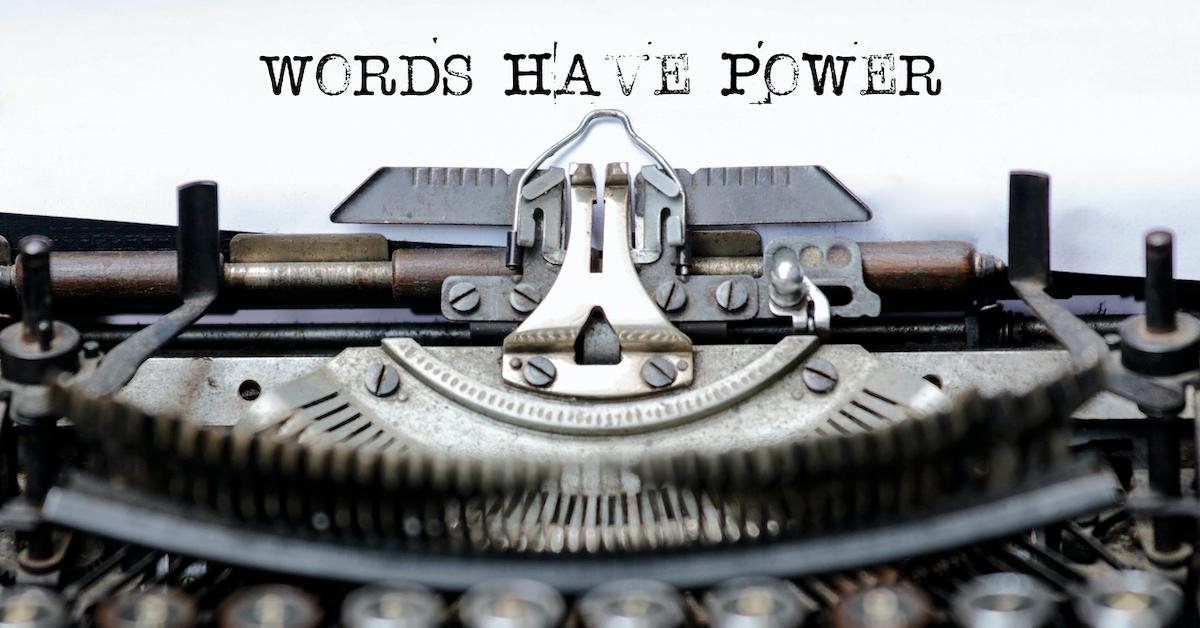5 Everyday English Phrases You Didn't Realize Were Racist
Updated July 14 2020, 8:16 p.m. ET

Words matter, and the origins of popular phrases and idioms we use in everyday speech can provide a telling insight into our history and way of thinking.
Too often, we parrot phrases, sayings, and idiomatic expressions without thinking twice about the racist notions they may evoke. And many times, the phrases — such as "master bedroom" and "blacklist," for example — are so commonplace, we don't realize their racially charged origins to begin with.
As we begin to take a more critical look at the language we use and how these phrases tie back to a darker past than we may have been aware of, here are some phrases with offensive and racist origins you may not have noticed.

Master Bedroom
A master bedroom is typically described as the home’s largest bedroom, usually with an attached bathroom. The phrase first appeared in a 1926 Sears catalogue that featured a colonial home, in reference to the second floor’s large bedroom and private bathroom. The term and the bedroom itself became more commonplace after WWII, as more working parents needed a private space within their homes.
Although it’s unclear whether the phrase “master bedroom” is rooted in the American slavery system, it does use the same language and evoke that dark history. That's why a number of real estate agencies have started to use the phrase “primary” to describe the largest bedrooms and bathrooms in a home.
Lynch mob
Unlike “master bedroom,” this one’s pretty clear in its origins and violent history. These days, a “lynch mob” is described as “a group of people who want to attack someone who they think has committed a serious crime” or a “group of angry people who attack or try to destroy something or someone.”
But any history book will (should) tell you that the phrase “lynch mob” is quite literal in that it refers to a group of people (historically these groups have usually been white) who would torture and kill Black people for an alleged offense without a legal trial.
Lynchings were used to terrorize the Black community and were most often racially motivated. Offenses that led to lynchings could be as simple as a Black person speaking with a tone to a white person, or looking at them in a wrong way.
Uppity
Speaking of looking at someone the wrong way, the word “uppity” was coined by white Americans during the Jim Crow era to describe Black people that weren’t showing enough deference when interacting with white people.
Unlike arrogance, which is a similar exaggerated self-importance, being “uppity” supposes that the person is acting in a way that suggests they have a dignity in themselves they’re not supposed to possess. There are many historical examples of Black people being lynched for appearing too “uppity” — and more recently, the Duchess of Sussex, Meghan Markle was criticized for apparently being too “uppity" by the British and American tabloids.

Blacklist, Black Sheep, Black Market
A "blacklist" refers to a collection of people who are excluded, and the term dates back to the 17th century. Per the Douglas Harper Etymology Dictionary, it's a "list of persons who have incurred suspicion," coming from the negative implications of the adjective black, "here indicative of disgrace, censure, punishment."
According to a Journal of the Medical Library Association paper titled 'Blacklists' and 'whitelists': a salutary warning concerning the prevalence of racist language in discussions of predatory publishing, the writers note that the first recorded use of the term "blacklist" occurred at the time "of mass enslavement and forced deportation of Africans to work in European-held colonies in the Americas."
The scholars also note that the adjective "black" as used in terms such as "black sheep" and "black market" (where black implies "disreputable, shamed, illicit, or outcast") reinforces, legitimizes, and perpetuates racist culture.
Hip Hip Hooray!
"Hip hip hooray!" as a cheer didn't start out as a problematic phrase (like the phrase "to call a spade a spade," which didn't originate as a racist phrase but evolved into one), but some think the first part of the cheer calls back to anti-Semitic demonstrations in 19th century Germany.
According to Business Insider, "Germans cheered 'hep hep,' a German herding call, as they forced Jews from their homes across Europe."
To be safe, we might as well just say "Hooray!" when we want to express excitement.
If you are looking for ways to donate your time or money to Black Lives Matter and other antiracist organizations, we have created a list of resources to get you started.